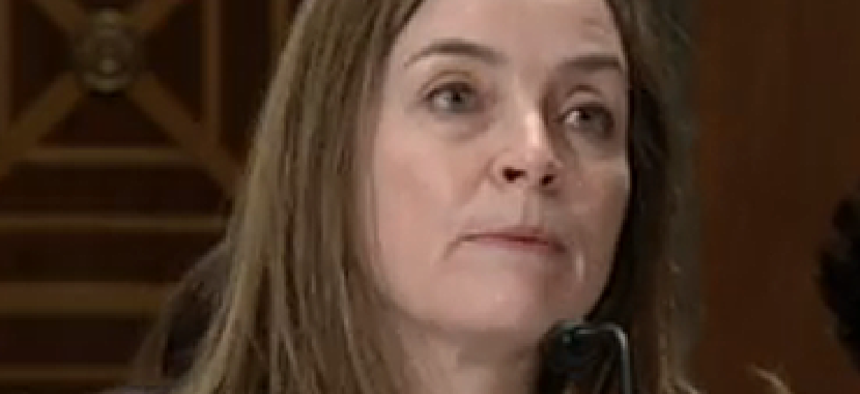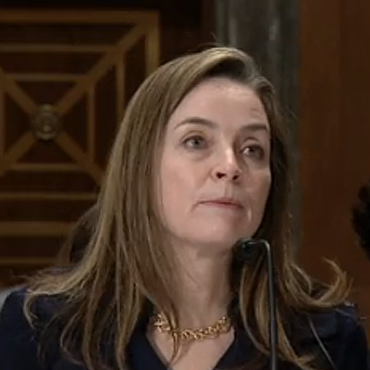Trump's DDM pick pushes IT modernization

President Trump’s nominee to serve as the Office of Management and Budget's deputy director for management highlighted IT modernization, data accountability and transparency and workforce management as her three priority areas throughout her cordial confirmation hearing.

Margaret Weichert at her Dec. 14 appearance before the Senate Homeland Security and Governmental Affairs Committee.
President Donald Trump’s nominee for the Office of Management and Budget’s deputy director for management highlighted IT modernization, data accountability and transparency and workforce management as her three priority areas during her cordial confirmation hearing.
Margaret Weichert, currently serving as an OMB senior adviser, was nominated Sept. 1 for the deputy director for management post -- a position that plays a key role in workforce management, procurement policy, IT policy and this administration’s reorganization effort.
Her Dec. 14 appearance before the Senate Homeland Security and Governmental Affairs Committee comes one day after the American Technology Council released the final version of its wide-ranging Report to the President on Federal IT Modernization.
The need to modernize IT across government “is an absolutely urgent issue,” testified Weichert.
As far as specifics, she said “a couple things that really jump to mind,” including building on “a lot of the work that’s already happened around moving to the cloud and shared services focus heavily on improvements and efficiency.”
Shoring up federal cybersecurity, especially, is “a critical element of the IT modernization strategy that I believe we need to pursue,” she added.
Weichart pointed to the recently codified Modernizing Government Technology Act as a way for agencies to take initiative on their own modernization plans, adding that the centralized IT modernization fund at GSA “hopefully will be appropriated.”
The new law, she said, “will allow us hopefully to shine the light on key projects that will help make it easier for agencies to prioritize these activities.”
Weichert, who before OMB worked as a principal at Ernst & Young, added that government must improve the way it buys technology, too. She pointed to the Technology Business Management initiative for “creating data standardization and taxonomy across government, so we really can compare like with like and get the best deal.”
She also testified she would want to see the federal CIO position, which reports to the deputy director for management and remains without a political appointee, “filled as soon as possible.”
“One of my priorities, if confirmed, is to really get all of the positions filled, and I know [OMB director Mick Mulvaney] is actively working on doing so,” she testified.
For persisting vacant CIO positions across government, Weichert said she would similarly push to fill those, and she added that doing so -- along with elevating the profile of CIOs governmentwide -- is “a critical need.”
When it comes to the inefficient people-management processes, “many of the policies that create these slow timelines today were established post-World War II era for very good reasons, but they’re not necessarily relevant in a digital world,” Weichert said.
She added that in areas such as information security, customer experience and data science, “if we have great federal employees doing a function that was really about what was status quo in the'50s, how do we bring those people into jobs that are relevant in the 21st century?”
For the government reorganization, on which OMB is taking a lead role, Weichart testified that in her current role as senior advisor, she has “not been directly involved with the reorganization process.”
Pending confirmation, Sen. James Lankford (R-Okla.) told Weichart part of her duties will be “getting up to speed on this,” adding that Mulvaney has told him directly, “Ms. Weichert is the one who’s going to be the point person for [reorganization] in the days ahead.”
NEXT STORY: Help wanted: Senior agile leaders needed


